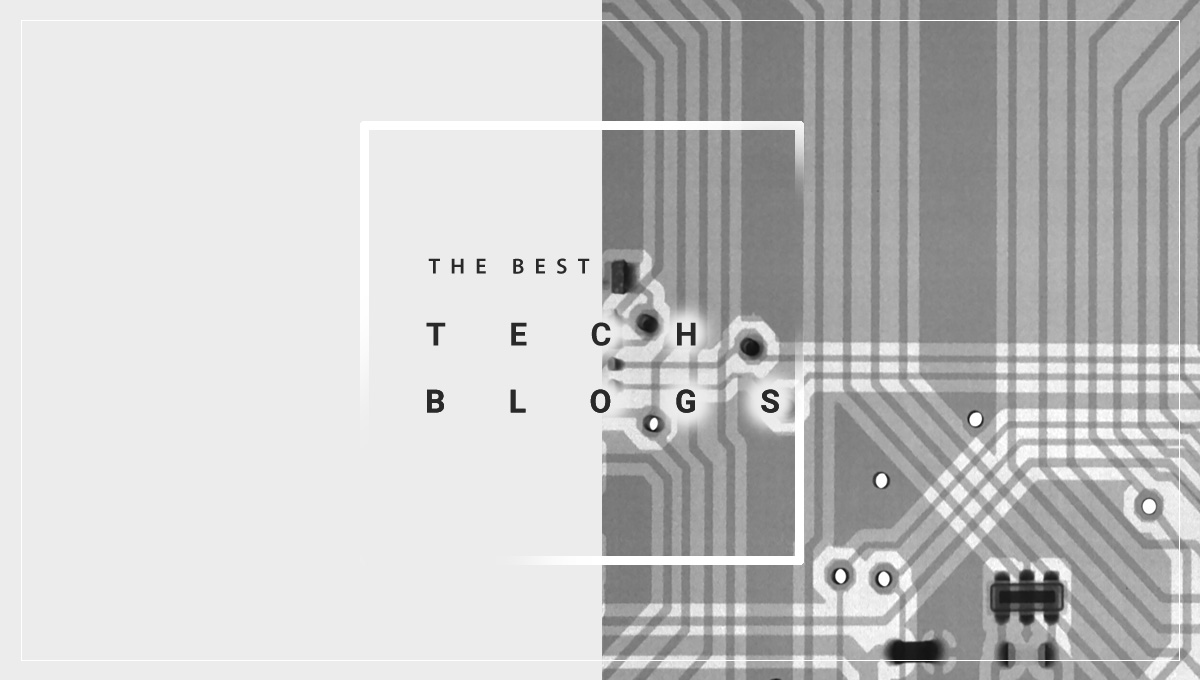Boost Your Understanding with the Best tech blog Featuring Industry Professionals
Boost Your Understanding with the Best tech blog Featuring Industry Professionals
Blog Article
Exactly How Blockchain Modern Technology Is Revolutionizing Data Protection
Blockchain modern technology is essentially changing the landscape of data safety and security by presenting a decentralized framework that guarantees enhanced openness and strength. Unlike traditional systems, which count on centralized data repositories, blockchain disperses data across a network, reducing susceptabilities and single points of failure. The usage of innovative cryptographic strategies ensures that information stays tamper-proof, fostering count on amongst individuals and stakeholders.
The Basics of Blockchain
Blockchain innovation, a revolutionary principle in electronic data monitoring, essentially transforms how details is kept and safeguarded. At its core, a blockchain is a dispersed journal that tape-records transactions across a network of computer systems, ensuring transparency and immutability.
Key to comprehending blockchain is the hashing process, which secures deal information right into an unique alphanumeric code. This cryptographic feature makes sure that any kind of modification in the deal information results in a completely different hash, consequently protecting versus tampering. The agreement device, one more critical part, validates and confirms brand-new deals via a network of nodes, thus getting rid of the demand for a centralized authority.
In addition, blockchain's append-only structure makes certain that information, once added, can not be erased or modified. This particular guarantees a proven and permanent document of deals, cultivating depend on amongst participants. Because of this, blockchain offers a robust framework for data integrity, providing sectors a reputable approach for monitoring and handling electronic information in a safe and secure, clear manner.
Decentralization and Security
Decentralization, a core concept of blockchain technology, substantially improves information safety and security by dispersing control across a network as opposed to relying upon a single, centralized entity. This circulation alleviates the danger of single factors of failing, which prevail in standard central systems. By distributing information across numerous nodes, blockchain makes certain that even if one node is jeopardized, the entire network stays secure. This redundancy not only strengthens the integrity of the data but likewise enhances its resilience to cyberattacks and system failings.

Moreover, decentralization encourages individuals with higher control over their information. Each participant in the network has accessibility to the whole blockchain, enabling them to verify and audit transactions individually. This openness fosters trust among individuals, as they do not need to depend on a central authority to ensure data stability. In general, decentralization is important in improving information protection in blockchain networks.

Cryptographic Methods
At the heart of blockchain innovation, cryptographic techniques play a pivotal function in securing information, ensuring both confidentiality and stability. These strategies are fundamental to the blockchain's capability to firmly videotape transactions in a decentralized fashion. Cryptography in blockchain uses a combination of symmetrical and asymmetric algorithms to encrypt information, making it obtainable only to licensed parties - Best tech blog. Public and exclusive vital sets are main to this process, enabling for protected verification and identity confirmation without disclosing sensitive information.
Hash functions are another crucial component, changing input data right into a fixed-size string of personalities, efficiently producing a distinct digital finger print for every block. This makes certain that any kind of effort to alter the information will certainly lead to a totally various hash, thus preserving the immutability of the blockchain. Moreover, digital signatures validate the authenticity and stability of deals, providing a layer of non-repudiation.
The decentralized nature of blockchain, combined with robust cryptographic techniques, gets rid of the demand for intermediaries, reducing prospective vulnerabilities. As blockchain modern technology advances, advancements in cryptography such as zero-knowledge evidence and homomorphic security remain to boost protection actions, even more strengthening data protection in this innovative digital ledger system.
Usage Cases Across Industries

In the healthcare market, blockchain guarantees the protected storage space and sharing of patient records, advertising interoperability while safeguarding sensitive data from Discover More Here unapproved accessibility. This technology empowers people with control over their case history and facilitates smooth control amongst medical care service providers.
Supply chain monitoring advantages significantly from blockchain's immutable ledger, which makes sure traceability and authenticity of products from origin to customer. By enhancing transparency, blockchain aids reduce issues such as counterfeiting and unethical sourcing.
Additionally, blockchain's decentralized nature is reshaping the energy sector by allowing peer-to-peer energy trading, where customers can deal excess renewable resource directly. This promotes an extra efficient and lasting energy ecological community.
In the realm of intellectual property, blockchain gives a tamper-proof system for designers to sign up and shield their works, making sure rightful acknowledgment and reasonable settlement. These varied use cases underscore blockchain's role as a pivotal force in redefining information safety and security across industries.
Future of Information Defense
As we seek to the future of data security, blockchain modern technology is poised to play an essential duty in safeguarding electronic info. With its decentralized and unalterable features, blockchain provides a robust structure for securing sensitive information against unapproved accessibility and cyber risks. This innovation makes sure that once information is taped, it is almost impossible to modify without detection, thus supplying a considerable advantage over conventional data storage methods.
The assimilation of blockchain with various other sophisticated innovations, such as synthetic knowledge and the Web of Points (IoT), is anticipated to improve information security approaches further. By leveraging wise agreements, organizations can automate and implement security procedures, minimizing their website human mistake and increasing efficiency. Furthermore, blockchain's capacity to give transparent and traceable purchases will certainly reinforce trust and accountability in data administration practices.
As regulative landscapes develop, blockchain's compliance-friendly nature will certainly become significantly pertinent. It can assist companies fulfill stringent information protection regulations, such as the General Information Protection Guideline (GDPR) and the California Customer Personal Privacy Act (CCPA), by providing verifiable records of data processing tasks. Ultimately, blockchain's unique attributes placement it as a transformative tool in the recurring quest to safeguard the electronic globe against ever-evolving cyber threats.
Final Thought
Blockchain innovation stands for a paradigm shift in data protection by leveraging decentralization and cryptographic techniques to improve openness, trust, and data integrity. Its capacity to get rid of solitary factors of failure and utilize consensus systems substantially minimizes the danger of scams and cyberattacks. This innovative framework not only encourages customers with higher control over their data yet also lines up with regulative conformity. As cyber hazards evolve, blockchain emerges as an essential device for robust data defense across numerous industries.
Blockchain innovation is essentially altering the landscape of data protection by introducing a decentralized structure that assures enhanced openness and resilience. Unlike traditional systems, which count on central data databases, blockchain disperses information across a network, reducing vulnerabilities and solitary factors of failing.Decentralization, a core concept of blockchain modern technology, considerably enhances information safety and security by distributing control throughout a network instead than depending on a particular, centralized entity.At the heart of blockchain innovation, cryptographic methods play an essential role in protecting data, ensuring both privacy and integrity.Blockchain modern technology stands for a paradigm change in information safety by leveraging decentralization and this contact form cryptographic methods to improve transparency, trust fund, and data honesty.
Report this page